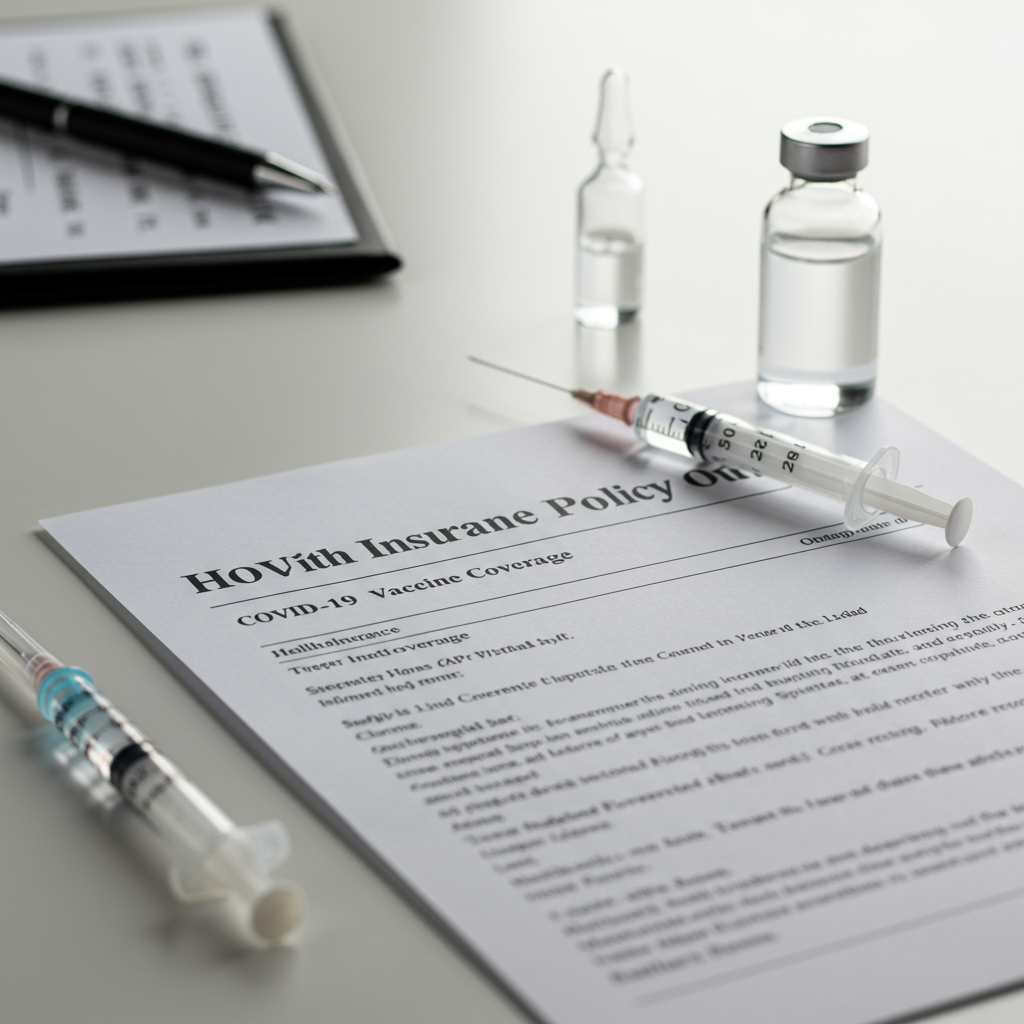Navigating COVID vaccine coverage can feel complex amidst shifting federal guidance, but major health insurers and public programs are largely committed to covering these vital immunizations. Despite recent turmoil and changes within federal health advisory bodies, you can expect your COVID-19, flu, and other recommended vaccines to be covered. This guide provides essential information on what to expect, how policies are evolving, and how to ensure you and your family maintain access to crucial public health protections.
Insurance Coverage Pledges Amidst Federal Turmoil
Concerns about COVID vaccine coverage have surged following significant changes within federal health agencies. Health and Human Services (HHS) Secretary Robert F. Kennedy Jr.’s actions, including replacing members of the influential Advisory Committee on Immunization Practices (ACIP), sparked worries about access and affordability. Yet, the health insurance industry has stepped forward to provide assurance.
America’s Health Insurance Plans (AHIP), a prominent trade group representing most major insurers, confirmed its members will fully cover COVID-19, flu, and other CDC-recommended vaccines. This commitment, starting September 1, 2025, extends through the end of 2026, with no cost-sharing for patients. UnitedHealthcare, though not part of AHIP, also independently pledged no-cost coverage for its standard commercial plans.
Understanding the Shifting Federal Landscape
The core of recent confusion stems from HHS Secretary Kennedy Jr.’s decision to fire all existing ACIP members and appoint new ones. ACIP is a crucial federal vaccine panel responsible for making recommendations that often trigger insurance coverage and pharmacy access. The newly constituted panel has deliberated on recommendations for various vaccines, including measles, mumps, and rubella (MMR), hepatitis B, and COVID-19.
This unexpected change in federal guidance has created “a lot of friction and confusion,” according to Sen. John Hickenlooper (D-Colorado). The shift also highlights a broader “fracturing” of national public health strategies that have been in place for decades. Kennedy Jr. has openly criticized the Centers for Disease Control and Prevention (CDC), contributing to a climate of distrust and uncertainty among states and medical professionals.
Evolving COVID-19 Vaccine Recommendations
The ACIP panel, under its new leadership, has notably altered its stance on COVID-19 vaccine recommendations. Instead of a universal annual recommendation for everyone aged six months and older, the committee now suggests Americans can opt for the vaccine based on “individual decision-making.” While this empowers personal choice, it departs from the clear, universal guidance typically expected from federal health bodies.
The U.S. Food and Drug Administration (FDA) also approved updated COVID-19 shots for the fall, narrowing eligibility. These shots are primarily recommended for individuals aged 65 and older, and younger adults and children with underlying health conditions that elevate their risk of severe COVID-19. However, the ACIP’s new “individual decision-making” approach has created some practical challenges.
Navigating Access and Eligibility
Despite insurers’ pledges, the path to obtaining a COVID-19 vaccine hasn’t been entirely smooth in all areas. Pharmacists in some states were initially hesitant to administer vaccines without a formal ACIP recommendation. This “snarled” access, particularly for new COVID-19 shots, in states where pharmacists require specific federal guidance.
The federal “Vaccines for Children” (VFC) program, designed to provide shots to uninsured and low-income children, also experienced a “standstill” due to the policy shifts. This uncertainty left many families concerned about potential hundreds of dollars in out-of-pocket costs for essential immunizations.
Major drugstore chains like CVS and Walgreens are now generally stocked with the latest vaccines. For those under 65, they will typically inquire about high-risk factors but will not require formal proof, relying on a patient’s self-attestation. However, be aware that in Washington D.C. and a “handful of states,” including Florida and Georgia, a prescription might still be required for vaccine administration.
State-Level Responses and Diverging Policies
In response to the federal uncertainty, several states have taken proactive measures to ensure residents can access COVID-19 vaccines. California, Colorado, Oregon, Nevada, and Washington have acted independently to guarantee shot availability.
This signals a significant shift towards state-led public health strategies. A “West Coast Health Alliance” of Democratic governors is coordinating to develop their own vaccine recommendations, citing the CDC’s impaired capacity. Some states, like Massachusetts, are working to ensure continued vaccine insurance coverage even if federal recommendations change.
Conversely, other states are leveraging the federal shifts to implement less stringent policies. Florida, for example, is considering eliminating requirements for school immunizations against diseases like chickenpox, meningitis, and hepatitis B, sparking strong criticism from public health experts. This divergence risks undermining herd immunity and could lead to inconsistencies in vaccination requirements across the nation.
Who Will Cover Your Vaccine?
The good news is that for most Americans, COVID vaccine coverage remains robust.
Private Health Insurance: AHIP and UnitedHealthcare have confirmed no-cost coverage for recommended vaccines through 2026. Private plans expect to cover COVID-19 vaccines for all patients, including children, pregnant women, and healthy individuals, with no cost-sharing.
Employer-Provided Plans: Most large employers offering health insurance benefits will continue to cover FDA-approved vaccines. These employers are motivated to prevent expensive hospitalizations from severe COVID-19 cases, which outweighs the cost of vaccination.
Public Programs: The Department of Health and Human Services (HHS) confirmed that public insurance programs, including Medicaid, the Children’s Health Insurance Program (CHIP), and Medicare, will continue to cover the shots. The federal VFC program, once stabilized, also automatically covers CDC-recommended vaccines.
However, some nuances exist. While insurers generally intend to cover vaccines without a direct ACIP recommendation, employer plans might choose to charge a co-pay or require a prescription or doctor’s consultation if the ACIP panel imposes specific restrictions for certain populations. It’s always wise to check with your specific health insurance provider for precise details regarding your plan.
Beyond COVID-19: Other Vaccine Updates
The ACIP panel’s recent activities weren’t limited to COVID-19. They also made decisions impacting other vital immunizations:
MMRV Vaccine: The panel voted to narrow existing recommendations for the combined MMRV (measles, mumps, rubella, and chickenpox) shot. This decision was based on a small, increased risk of febrile seizures identified as an uncommon side effect of the combination vaccine.
- Hepatitis B Vaccine for Newborns: A planned vote regarding the recommendation for the hepatitis B vaccine for newborns was indefinitely postponed. This vote would have considered delaying the first dose from birth to one month for infants born to mothers testing negative for hepatitis B. The discussion highlighted differing views on vaccine safety and the critical importance of universal birth dose for preventing chronic hepatitis B.
- www.usatoday.com
- www.yahoo.com
- abcnews.go.com
- www.phillyvoice.com
- www.pbs.org
Addressing Patient Anxieties and Misinformation
Patient anxieties regarding vaccine insurance coverage are significant. An August 1 KFF poll revealed that while 40% of adults planned to get a COVID-19 vaccine, a striking 62% of those intending to get vaccinated were worried about insurance not covering the cost. These recent insurer pledges directly aim to alleviate such widespread concerns.
The current environment, marked by federal policy shifts and heightened scrutiny, has also led to a surge in misinformation. New organizations have emerged to provide alternative guidance and combat unsubstantiated claims, underscoring the public’s need for clear, science-backed information. It’s more important than ever for individuals to seek information from trusted medical sources and consult with their healthcare providers.
In conclusion, despite the considerable federal policy shifts and the “noise” around vaccine recommendations, the fundamental infrastructure for COVID vaccine coverage and access remains largely intact. Health insurers, public health programs, and many states are working to ensure financial barriers do not prevent essential immunizations. Staying informed and proactive by checking with your provider and understanding state-specific requirements is key to maintaining your health and peace of mind.
Frequently Asked Questions
How has federal guidance on COVID-19 vaccines changed recently?
Federal guidance on COVID-19 vaccines has shifted significantly due to changes initiated by HHS Secretary Robert F. Kennedy Jr., including the replacement of the Advisory Committee on Immunization Practices (ACIP) panel. The new ACIP committee has moved away from a universal annual recommendation for the COVID-19 vaccine, instead suggesting “individual decision-making.” The FDA also narrowed its approval for updated COVID-19 shots, primarily recommending them for individuals aged 65 and older or those with underlying health conditions. This has led to some initial confusion and access challenges in certain states.
Will my health insurance cover the updated COVID-19 vaccine?
Yes, in most cases, your health insurance is expected to cover the updated COVID-19 vaccine without cost-sharing. Major trade groups like America’s Health Insurance Plans (AHIP) and individual insurers like UnitedHealthcare have pledged full coverage for COVID-19, flu, and other recommended vaccines through at least 2026. Public programs such as Medicaid, CHIP, and Medicare will also continue coverage. However, some employer-provided plans might introduce co-pays or require a prescription or doctor’s consultation under specific circumstances, so it’s always best to check with your particular health insurance provider.
What should I do if I need a COVID-19 vaccine and face access issues?
If you encounter access issues, first verify your specific COVID vaccine coverage details with your health insurance provider. Major pharmacies like CVS and Walgreens are generally stocked and can administer vaccines, though some states (e.g., Florida, Georgia, Washington D.C.) may require a prescription. If you’re not in an FDA-approved group but wish to be vaccinated, discuss “off-label” prescription options with your doctor. Additionally, be aware that states like California, Colorado, Oregon, Nevada, and Washington have implemented their own measures to ensure resident access, so check your state’s specific public health guidance.




